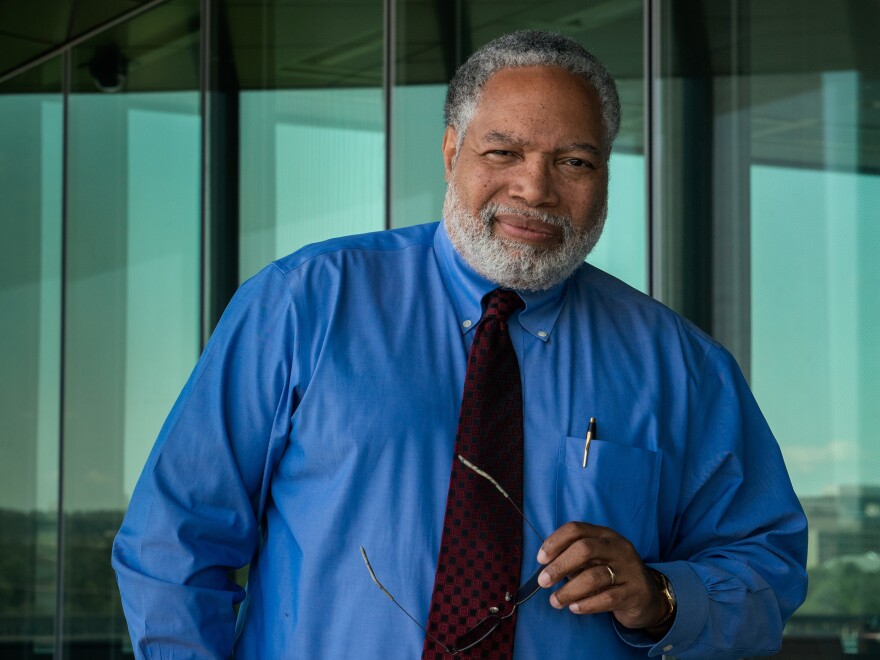Lonnie Bunch III's interest in the past began with an incomplete story. His grandfather, a sharecropper-turned-dentist, would read history books to him, and Bunch would wonder why the pictures of black children contained little detail — why the captions simply read "unknown children" or "anonymous."
The founding director of the National Museum of African American History and Culture, Bunch has dedicated his life to telling a fuller, rounder and more complex historical narrative. He'll continue that mission in taking the reins of the entire Smithsonian Institution as its first African American secretary, overseeing 19 museums, 21 libraries and the National Zoo.
"It is crucially important for the Smithsonian to recognize it has an obligation to help America understand the fullness of itself, not just a portion of itself," Bunch tells NPR's Steve Inskeep.
When he assumes the position on June 16, he will become the first black person to lead the Smithsonian, and also the first historian to become secretary.
Bunch's philosophy is best evidenced by his leadership and curation at the NMAAHC. When the museum was first announced, some critics called the project a Balkanization of history, splintering the national narrative. He counters that more perspectives are necessary to piece together a coherent narrative.
"One of the great strengths of the Smithsonian is that we have different portals into what it means to be an American," Bunch says. "You can understand that through the American Art Museum or through the Air and Space Museum or American History Museum."
Transitioning to the head of the Smithsonian's leadership team, Bunch aims to maintain this approach centered on diversity and nuance.
"I think the biggest goal of history at the Smithsonian ought to be to help the American public embrace ambiguity to understand that there's not simple answers to complex questions," Bunch says. "And if we can help the public become comfortable with wrestling with the shades of gray then we've really made a contribution."
Whether or not that means the Smithsonian will expand its offerings to include museums dedicated to women or Asian Americans is up to Congress, Bunch says. Nonetheless, he's focused on telling a compelling historical story that resonates with all visitors and excludes no one.

Beyond diversifying the content and artifacts within the Smithsonian's vast halls, Bunch also wants to broaden its mediums.
"The Smithsonian is a place that helps you understand the traditions of the country but also helps you understand innovation and the possibilities of the future," Bunch says.
Increasing technology and virtual exhibits is partially motivated by accessibility. Bunch says he wants the Smithsonian's resources to be available to all — not just those who walk through the doors of a museum.
Outgoing secretary David J. Skorton and his predecessor Wayne Clough were both university presidents, selected in part for their skills in fundraising. Bunch's appointment was certainly aided by his proven skill at raising funds for the creation of the NMAAHC.
But Bunch also has deep history with the Smithsonian. Years before he assumed leadership at the NMAAHC, Bunch worked as an associate director and curator at the Museum of American History and as a historian at the Air and Space Museum.
"The reason I took the job is that the Smithsonian transformed my life," Bunch says. "It's the place I care most about. It's where I met my wife. My kids went to preschool here. It's a place where any job I've ever had is because of my time at the Smithsonian.
"For me there's something wondrous about the Smithsonian ... [it's] the place of my dreams."
Bunch is not taking his new job responsibilities lightly. Asked about the meaning of his new post, he responded: "I feel the weight of history."
Josh Axelrod is the NPR Digital Content intern.
Copyright 2021 NPR. To see more, visit https://www.npr.org.


